When Sleep-Deprived Turns to Self-Deprived
Written by Mikylla Ryza Dela Cruz
Have you ever wondered if we, to some extent, are sabotaging ourselves? Have you, yourself, ever slept late? Or maybe you have spent an entire night awake?
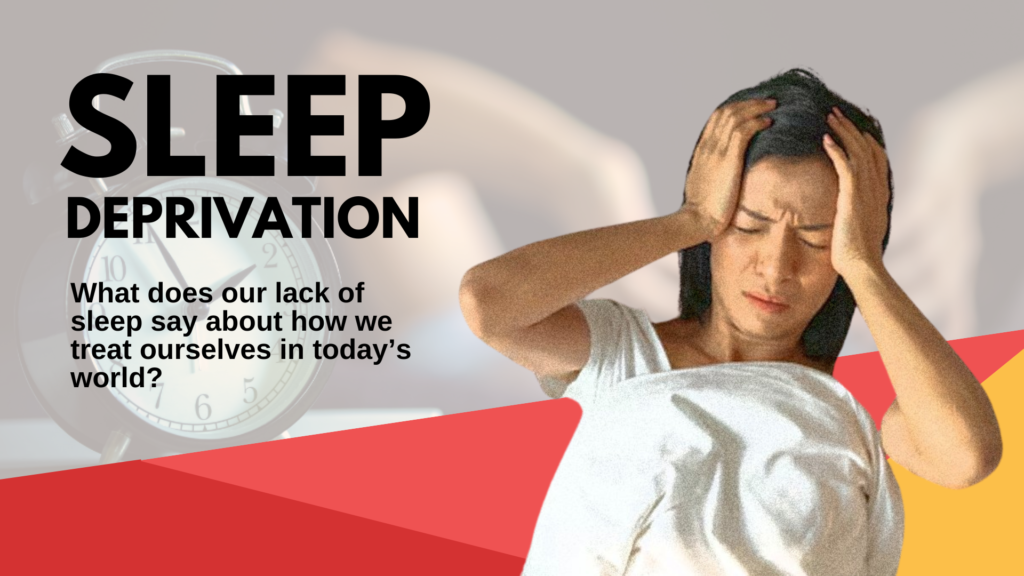
It’s not just about the pressure from society anymore. Sometimes, we’re the ones pushing ourselves too far. Between perfectionism, hustle culture, and the constant noise of social media, it’s as if today’s youth are unintentionally setting themselves up for emotional burnout.
We scroll nonstop, compare every move we make to others, and try to keep grinding, even when we’re running on empty. This idea of self-deprivation, where we cut ourselves off from rest, peace of mind, or even our own self-worth, is starting to feel like a norm for our generation. But why is that? Why are so many of us willing to sacrifice our mental health, physical energy, and real-life relationships chasing impossible standards? And more importantly, how do we even begin to find a balance between working hard and taking care of ourselves?
What even is sleep deprivation? Why do we keep doing it? Sleep deprivation refers to not getting enough sleep to meet one’s needs or getting insufficient quality sleep. It can be a short-term issue or a chronic problem with various causes, and it can have significant negative impacts on health and well-being.
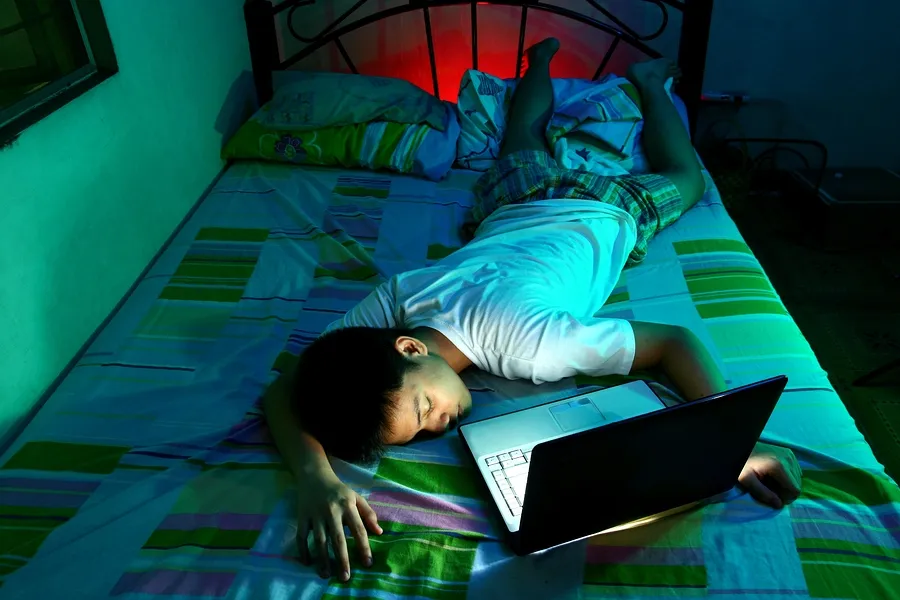
Courtesy: Motherwell
There’s this unspoken pressure to have it all figured out by your early twenties. As in, if you’re not juggling multiple gigs, running a side hustle, and looking flawless while doing it, you’re “falling behind.” Hustle culture puts that mindset on a pedestal. Add social media to the mix, and you’ve got a daily feed full of picture-perfect lives that make it hard not to feel like you’re lacking something. This toxic combo of unrealistic expectations and constant comparison is driving more and more young people to give up sleep, downtime, and even their sense of self just to keep up.
One of the most obvious signs? Sleep deprivation. The numbers don’t lie. According to GMA Integrated News, the Philippines is actually the most sleep-deprived country in Southeast Asia. More than half (56%) of Filipinos get less than seven hours of sleep a night, and globally, we’re ranked fourth in sleep deprivation. A 2023 study by the Philippine Mental Health Association backs this up, revealing that 73% of Filipino students get fewer than six hours of sleep a night. That’s way below the recommended eight hours, and it shows just how widespread the issue is.
But sleep isn’t the only thing we’re giving up. Young people today are skipping meals, following harsh diets to meet unrealistic beauty standards, and spending way too much time online. Digital exhaustion is real. We’re constantly trying to stay “relevant” on apps like TikTok, but at the cost of real-life experiences and meaningful rest.
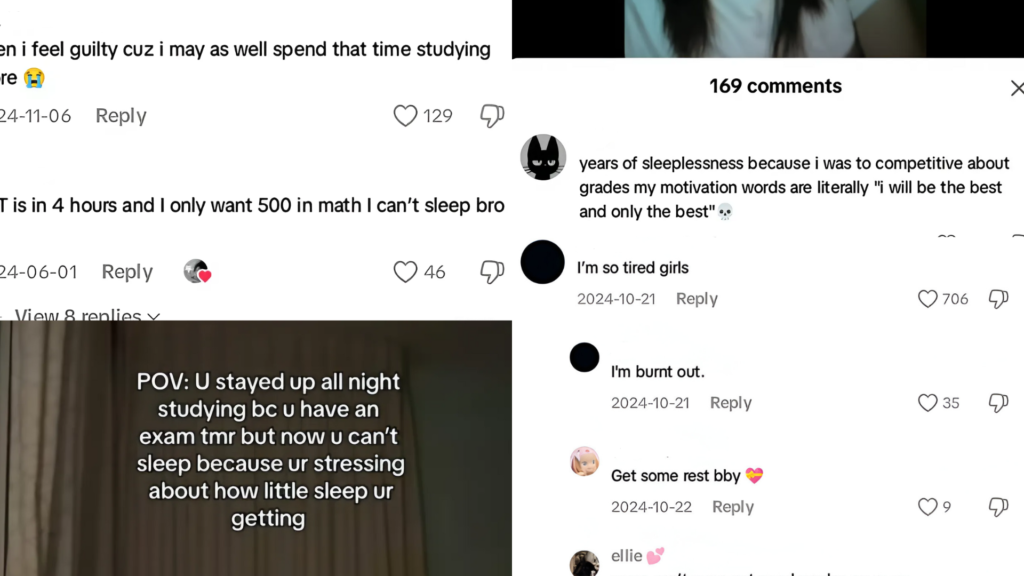
Courtesy: TikTok
So, why do we keep doing this, even when we know it’s bad for us?
A big part of it is pressure. The pressure to perform academically, to succeed professionally, and to keep up socially. It’s a lot. Social media doesn’t help either. It pushes this culture of comparison that makes it hard to appreciate your own wins. And then there’s this twisted mindset that exhaustion equals success. If you’re tired and overworked, some people see that as proof you’re doing something right. In a world that glorifies struggle, burnout becomes a badge of honor.
And in all honesty, when the lines between school, work, rest, and play get blurred, especially now that everything’s digital, it gets even harder to switch off and recharge.
The effects of all this self-deprivation? They’re heavy. Physically, not getting enough sleep, eating poorly, and not moving your body can mess with your immune system and increase your risk of illness. Mentally, anxiety, depression, and burnout are becoming way more common among the youth. In fact, the Department of Health (2024) reported that 1 in 5 Filipino youth are dealing with serious mental health issues. Emotionally, always trying to meet other people’s expectations can leave you feeling disconnected from your own goals and passions. Even relationships suffer. When all your time goes to striving, there’s not much left for the people you care about.
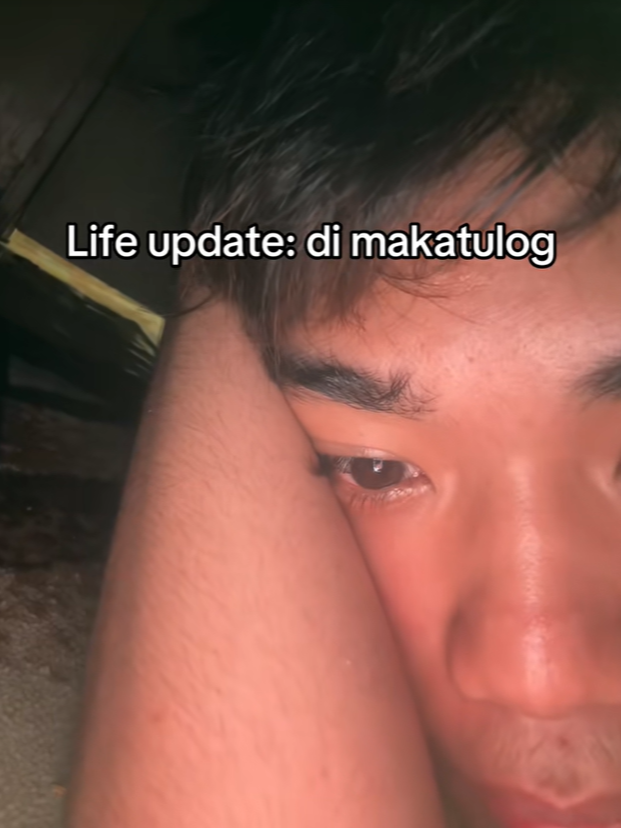
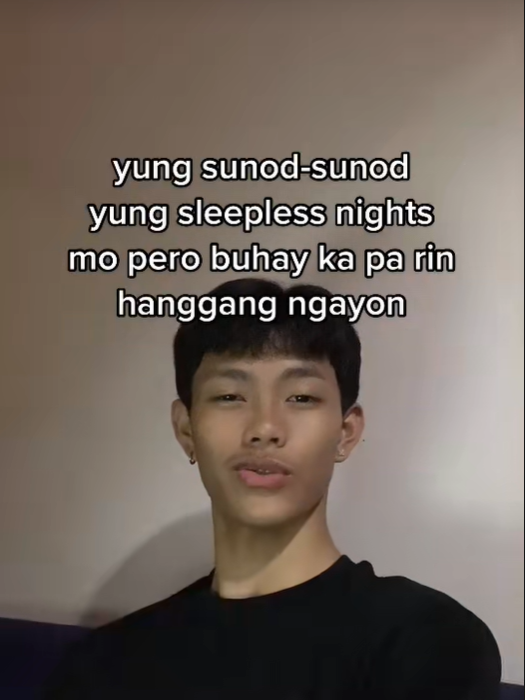
Courtesy: TikTok
So, what do we do about it? Fixing this isn’t just about changing our personal habits. It’s about shifting culture. Groups like #MentalHealthPH are already making moves. Their “Rest is Resistance” campaign (2024) is all about encouraging young people to stop glamorizing overwork and start putting their well-being first. Schools and workplaces can help too by creating spaces where balance is prioritized and mental health resources are available. On an individual level, setting boundaries, redefining what success looks like, and getting professional help when needed. Those are key steps to breaking out of this cycle.
We need to start asking ourselves: Why is burnout something we brag about? Why does rest feel like a luxury instead of a right? What would life look like if we celebrated self-compassion as much as we do success?
Our generation has the power to shift the narrative. By choosing rest, real connection, and intentional living, we can create a future that values balance more than burnout.
Are we forced by the need to survive? Or are we getting too addicted to freedom and are abusing the power we have?
What do YOU think? What do YOUTH think?
References:
Department of Health. (2024). Mental health in the Philippines: A growing concern. https://www.doh.gov.ph/mental-health
GMA Integrated News. (2023, September 20). Filipinos are the most sleep-deprived in Southeast Asia – study. GMA News Online. https://www.gmanetwork.com/news/scitech/science/915312/filipinos-are-the-most-sleep-deprived-in-southeast-asia-study/story
MentalHealthPH. (2024). Rest is Resistance: Campaign highlights. https://mentalhealthph.org/rest-is-resistance